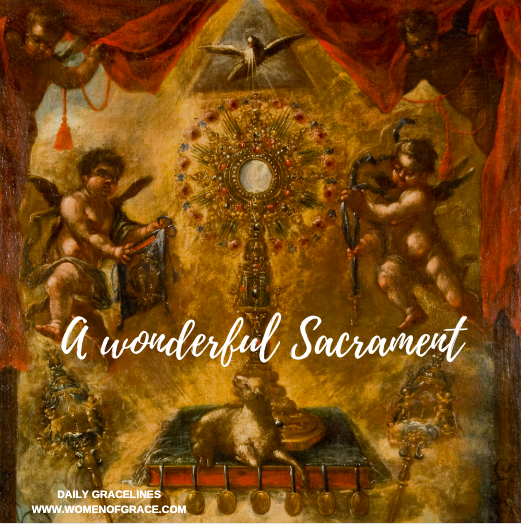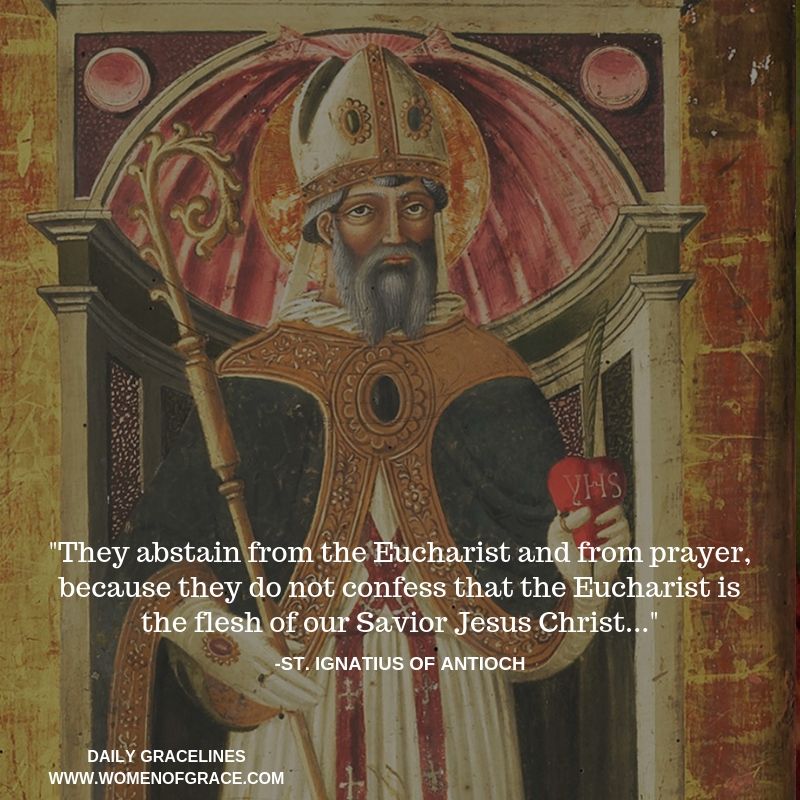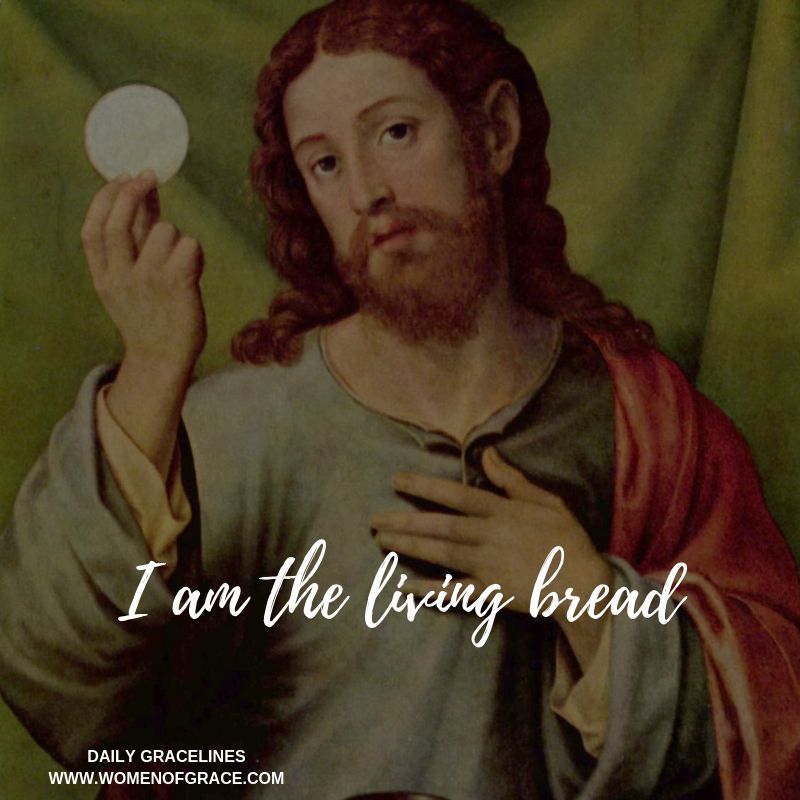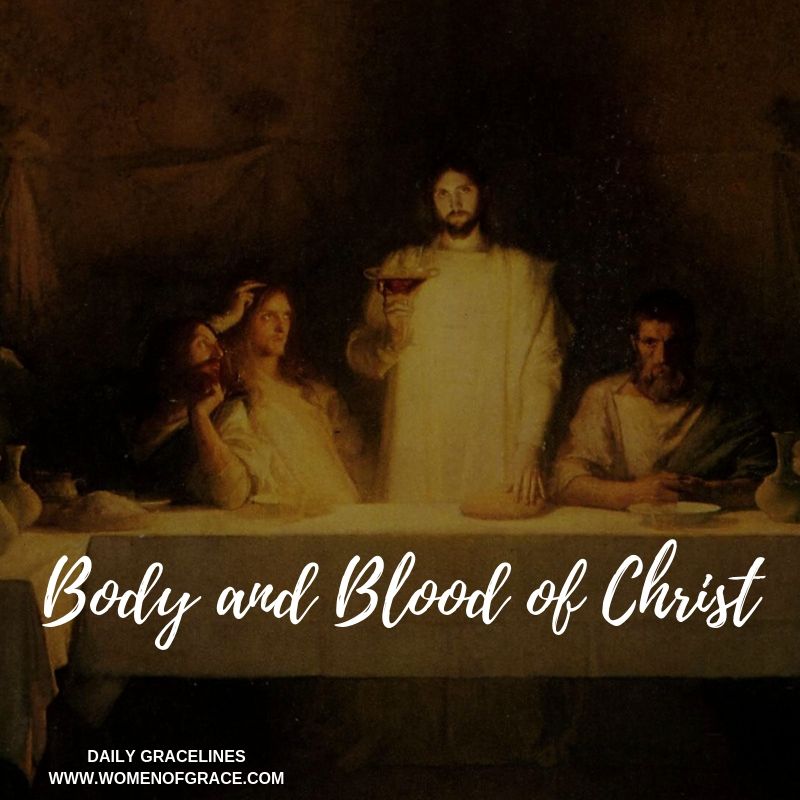Dear Friends,
It’s hard to believe that we are already entering into the second week of the Easter Season. It is my deepest hope that you and your loved ones were able to fully experience Holy Week and the glory of Easter.
As we make our pilgrimage towards Pentecost together, I thought it would be fitting that we take time to reflect more deeply on the great gift of the Lord to us on Holy Thursday, His Eucharistic presence. For the next couple of blogs, I will be providing a reflection on how we can enhance our experience of the Eucharist. In these times of great challenge for the Church, we go to the source and summit of our faith and spirituality, Jesus in the Blessed Sacrament, who will strengthen and refresh us.
 The Eucharist: Nourishment for Our Souls
The Eucharist: Nourishment for Our Souls
“What material food produces in our bodily life, Holy Communion wonderfully achieves in our spiritual life. Communion…preserves, increases, and renews the life of grace received at Baptism. This growth in Christian life needs the nourishment of Eucharistic Communion …” (No. 1392).
As the passage from the Catechism suggests, the spiritual life, like the body, languishes and dies without proper nourishment. The Eucharist is its nutritional source. Through Eucharist, charity is strengthened, venial sins are wiped away, we are preserved from mortal sin, we are united to the Mystical Body of Christ, we are helped to commit to the poor and to seek unity among all Christians (Catechism, § 1394-1398). Simply stated, the Body and Blood of Jesus Christ, active within us, becomes a transforming agent for ourselves and for others. If we are to make progress in the spiritual life and become a catalyst of Christ’s love in the world, we must be nourished by the Eucharistic presence of Our Lord Jesus Christ.
However, simply receiving Communion is not enough. While Eucharist is replete with spiritual blessings, its effectiveness in our lives depends upon the disposition or holy desire we bring to the Sacrament. If our disposition is weak and our fervency shallow, though we receive all of Jesus in the Eucharist, its effect on our spirit is limited. Only by coming to the Sacrament with fervency and expectant faith, do we experience the full measure of grace offered to us through the Body and Blood of Jesus Christ.
According to Reginald Garrigou-Lagrange, the great Thomistic scholar, a fervent communion is marked by four characteristics: humility, respect for the Eucharist, a living faith, and an ardent desire to receive Jesus (The Three Ages of the Interior Life).
Though acquiring the virtue of humility is often the work of a lifetime, it can be encouraged by a prayerful consideration of who Jesus Christ is and who we are. By cords of love our Lord draws us to himself. It is his mercy, not our worthiness, which gives us the great privilege of receiving him in Eucharist.
If we are to grow in the virtue of humility we must spend time in prayer. It is in prayer that God communicates Himself to us, corrects our misunderstandings, purifies our hearts and minds, strengthens our holy desires, brings us to self-knowledge, and reveals our motivations. We will never attain to holiness if we do not spend time in mental prayer.
While we can pray anywhere and in any circumstance, spending time before the Blessed Sacrament is a most fruitful way to pray. In front of the One whose own Body and Blood bought for us our salvation, we are humbled indeed. Here we can offer to God all of our struggles, trials, hopes and dreams, as we seek to be fashioned after the heart of His Son. Our time of prayer must become the hallmark of our lives.
Respect for the Eucharist is the second characteristic of a fervent communion. Our physical demeanor in the presence of the Lord reveals the attitude of our hearts. Our body language, style of dress, tone of voice all help or hinder the spiritual benefits we receive in Holy Communion. We must seek to develop an abiding respect for the Eucharistic presence of Jesus Christ and everything about us must reflect it. Genuflecting, kneeling with erect posture, bowing before receiving Eucharist all help us to remain focused on the One who gives himself to us.
It may be fruitful for a deepening of your worship experience to make a special field trip to participate in a Holy Mass celebrated by one of the other valid rites of Holy Mother Church. Some examples are the Tridentine Rite Mass, the Maronite Rite, the Ruthenian Rite, and the Melkite Rite. The physical signs of reverence given to the Eucharist which are displayed under these forms of worship can be excellent holy reminders to help us elevate our own experience of the Liturgy.
Stay tuned for Part II where I will discuss how to cultivate living faith and ardent desire…
Faith in Action:
- The next time you are preparing yourself to received Jesus in Holy Communion, ask Our Lady to help you to receive him with greater humility and awe. A simple prayer like, “Dear Mother, please assist me in this moment of communion with your son Jesus to receive him into my soul with greater humility, receptivity, gratitude and love.”
- Take time to reflect on your past and present attitude towards Jesus in the Blessed Sacrament and your belief in the Real Presence. Has yours been an attitude of respect and reverence or disregard and disrespect? For those times when you haven’t shown Jesus the reverence He deserves, ask forgiveness and for those times when you have shown Him great love, give thanks.
- Consider making a field trip to a Catholic parish which offers the liturgy under one of the other accepted rites of the Roman Catholic Church.
















 Pope John Paul II, a man of deep prayer and Eucharistic adoration, has encouraged Catholics everywhere to seek the rich spiritual benefits available through Eucharistic worship. He writes:
Pope John Paul II, a man of deep prayer and Eucharistic adoration, has encouraged Catholics everywhere to seek the rich spiritual benefits available through Eucharistic worship. He writes:  The Eucharist: Nourishment for Our Souls
The Eucharist: Nourishment for Our Souls